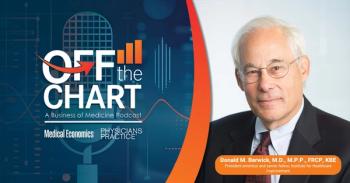
Universal Health Insurance May Not Lead to Universal Healthcare
As long as we view health insurance, rather than access to healthcare, as a right in this country, the problem will only get worse.
Recently a neighbor backed into my car while I was leaving a food store. The damage was minimal, but she offered to have her insurance company pay for the repair. After contacting the company, I was offered several body shops, and chose the one closest to my home. The work was completed in only two days, and while it was in the shop, I decided to also have some dents and scratches fixed, which were unrelated to the accident claim.
To my surprise the mild fender damage, which was covered by the other driver’s company, was paid in full without an estimate. The amount was approximately $500. One scratch on the other side and four dents were also repaired, for which I paid separately a little over $400. So I spent (out-of-pocket), for three times as much work and paid less than the insurance company did. This got me thinking about how insurance adds to the costs of services in the auto industry, and how that might be relevant to health insurance.
Having practiced medicine for over 30 years, I am convinced that when it comes to the cost of healthcare and insurance, insurance is the problem and not the solution. Health insurance is not sold in a truly free market, like home, disability, and life insurance products, etc.
Let’s look at some parts of healthcare where traditional insurance does not cover the cost of the service. In his excellent book on this subject, “Priceless,” John C. Goodman, states the case quite well. LASIK eye surgery and “cosmetic surgery prices, rarely covered by insurance, has been falling over time in real terms -despite a huge increase in volume and considerable technical innovation (which is blamed for increasing costs for every other type of surgery).” Since insurance does not dictate the prices and reimbursements for these procedures, doctors are free to repackage their services competitively, and patients are free to negotiate.
Even how health insurance functions in this country makes it quite different than all other insurance products. Automobile insurance protects against unforeseen and catastrophic events, such as a vehicular damage, theft, and human injury. There is no “preventive” insurance as seen with healthcare. If I pay a premium to GEICO, it does not cover the cost of tire rotations, brakes, new batteries, or oil changes. Similarly, homeowners' insurance pays for storm damage to a roof, but not the price of roof replacement from normal wear, tear, and aging. Even the assumed theory that preventive care reduces overall healthcare expenditures is arguable.
Part of the difference may be historical. Post-WWII, employers were not allowed to raise wages, so to attract better employees, they began to offer health insurance as a fringe benefit of employment. Soon unions used employer-sponsored health insurance as a bargaining chip in labor negotiations, and we all know the rest of the story. Health insurance is unique in this regard. After all, most employers don’t offer auto, home, or property insurance. The historical basis for this phenomenon, and our assumption that it is only humane and kind to make sure all of our citizens are protected for illness, have lead to the unintended consequences of waste, fraud, abuse, and price escalation. Soon it will also lead to rationing of care.
Although the Affordable Care Act (ACA or Obamacare) guarantees health insurance for all, it does nothing to increase the number of providers who will deliver these services. The approximately $750 billion of Medicare “cost savings” will be derived from reduced payments to hospitals and providers, making access to scarce providers even more difficult. A more complete critique of ACA, and its destructive effects on healthcare however, is subject for another blog.
So back to my car and health insurance. If I had been able to get a competitive price for damage repairs from several collision shops, I am sure that the insurance company could have saved money. Instead, they pay top dollar and pass it along to their customers. Similarly in my practice, there is no incentive to hold down the number of tests I order, since the prices are essentially fixed by Medicare, so that I, the provider, as well as the patient, the consumer, have absolutely no say in the matter. HMOs, or the new ACA-mandated accountable care organizations (ACOs) are no better. Their incentives are every bit as perverse - just 180 degrees in the opposite direction. Fee-for-service, or traditional Medicare encourages too much testing and services that possibly cause improvement in the quality of care; whereas the HMO and ACO are incentivized to withhold care, and thereby increase their profits, again at uncertain damage to the patients’ health.
Free market and competitive solutions would help, but with the injection of the ACA as the law of the land now, I fear this will never happen, no matter which candidate wins in November. As long as we view health insurance, rather than access to healthcare, as a right in this country, the problem will only get worse. But don’t believe me. Recently I cared for an elderly man from Great Britain, who was hospitalized here for a heart problem. He was more than eager to share his thoughts about the British National Health system. After railing against it for several minutes, he summed it up with this: “You people are making a big mistake in this country.”
Find out more about David Mokotoff and our other
Newsletter
Optimize your practice with the Physicians Practice newsletter, offering management pearls, leadership tips, and business strategies tailored for practice administrators and physicians of any specialty.









